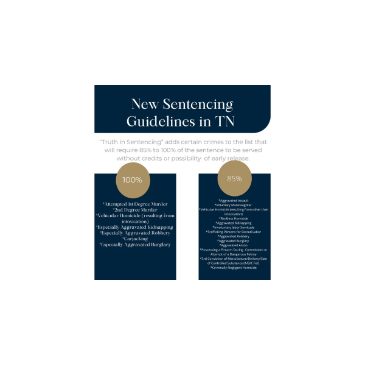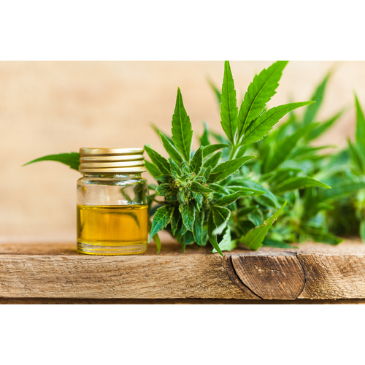The Tennessee Bureau of Investigation has released the 2021 publication of its annual “Crime in Tennessee” report. This report is a collection of data gathered from every “incident” reported by law enforcement agencies throughout the state. As is described in the opening letter, the Tennessee Incident Based Reporting System (TIBRS) tracks every reported crime, including […]
Author Archives: AccelerateEditor
Beginning this month, Tennessee has added a list of new crimes that apply to its “Truth In Sentencing” time-served requirements. “Truth In Sentencing” started as a general trend among many states in the 90s in response to federal grant incentives and backlash from the potential for early release of certain criminal offenders. While the details […]
Often people can be hesitant to pursue an auto accident or personal injury claim. These hesitancies are usually based on ideas perpetuated on television or passed down through culture. Not pursuing a claim for injuries can lead to significant hardship on those, through not fault of their own, were injured in an accident. Even if […]
Tennesseans love their time on the water while using their boats and other personal watercrafts. But Tennessee updated their Boating Under the Influence (BUI) Laws in 2021 to reflect the seriousness of this offense. We at Best and Brock, PLLC understand how easy it can be to lose yourself in the summer fun and slip […]
Within the past couple years, Delta-8 THC has skyrocketed in popularity across the country as a “legal” substitute and loophole around many state and federal laws prohibiting “marijuana” and Delta-9 THC. To understand why that is, it’s important to first understand what exactly these chemicals are, and the legal definitions of the different terms. Definitions […]
Prior to 2022, TCA § 40-25-105 did not address restitution paid to the victim of a crime in its ordered schedule of payments from a convicted defendant. HB 870/SB 893 sought to change this. Passed in 2021, and in effect as of January 1, 2022, § 40-25-105(a) now places a victim’s right to restitution as […]
Zack England is honored to be a member of the 2022 Tennessee Bar Association’s Leadership Law Program. The program is in its 19th year and has had over 500 graduates. Members are nominated by alumni of the program and then chosen over a rigorous selection process. TBALL is proud to be comprised of a diverse alumnus […]
Georgia, like every state, has an “implied consent” law dictating that any driver within Georgia has implicitly provided consent to testing for alcohol in the blood and/or breath if that person was arrested for a charge like DUI. Georgia’s implied consent law also applies to drivers who were involved in traffic accidents that lead to injuries […]
What Does the Implied Consent Law Mean in Tennessee? In Tennessee, “implied consent” means that by driving within Tennessee, you have given your consent to submit to a blood and/or breath test for alcohol, if there is probable cause to believe you’ve committed an offense such as DUI. All 50 states in the country have […]
While probation is very similar to programs like parole and supervised release, it’s important to note the differences between each. As opposed to parole and supervised release, which are conditional supervision programs that come after someone has finished serving time, probation is supervision in lieu of serving time. So, instead of being sentenced to a […]










